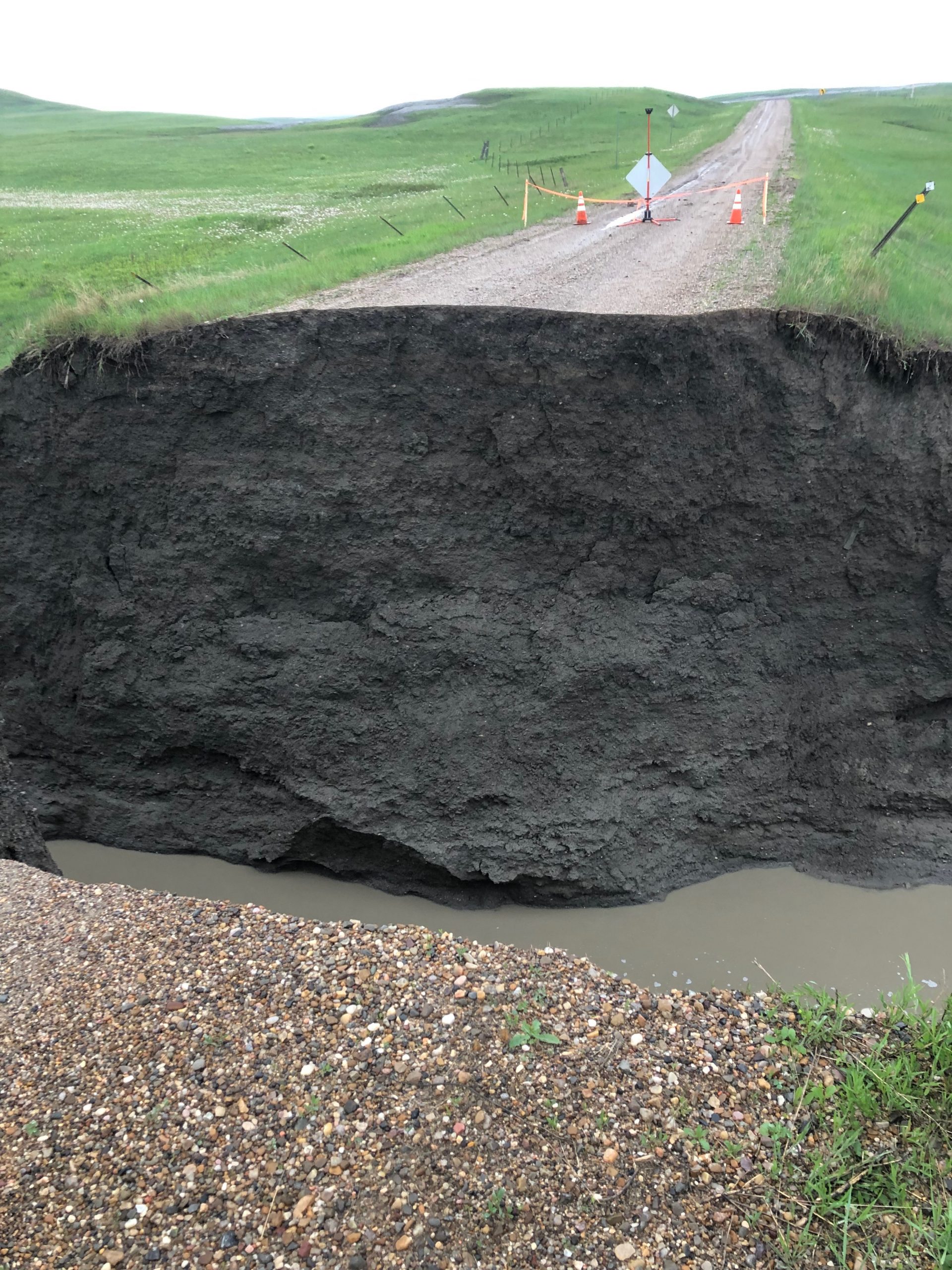BIA steps on tribal sovereignty

The BIA “has shut down Route 9 at mile marker 12.2 for two years now because you failed to live up to your trust responsibility…. Why are you accusing us of closing roads when you have done that to us?” Cheyenne River Sioux tribal chair tells federal bureau director.
EAGLE BUTTE — Cheyenne River Sioux Tribal Chair Harold Frazier answered a federal Bureau of Indian Affairs challenge to the tribe’s Covid-19 highway checkpoints with an April 30 challenge of his own.
In a missive to Bureau of Indian Affairs Director Darryl LaCounte, Frazier penned the latest chapter in a month-long spat that the checkpoints sparked between the two over the BIA’s federal trust responsibility to native nations and its intromission in sovereign tribal decisions.
It all started in early April when the Cheyenne River Sioux Tribe (CRST) set up traffic checkpoints on U.S. Highway 212, on the east and west borders of the reservation, in an attempt to help prevent the spread of the Covid-19 coronavirus in tribal jurisdiction.
Several weeks later, LaCounte issued a letter to Frazier, warning that the tribe “cannot legally close or restrict travel on U.S. 212 without first consulting with the state…”
The federal appointed official wrote that if South Dakota had not agreed to the checkpoints, CRST may be in violation of U.S. law and that failure to “immediately reopen the highway for motorists” may have “serious consequences”. He did not explain what those consequences would be.
In a strongly worded response letter, Frazier immediately told LaCounte that he was “making erroneous assumptions based on a lack of correct information” and that the tribe in fact hadn’t closed any roads.
“We are simply regulating travelers’ entry onto the reservation in an attempt to prevent, reduce, and track the spread of the Covid-19 coronavirus here on the Cheyenne River Sioux Reservation,” wrote Frazier.
Many tribes feel the need to take more aggressive measures than states to protect tribal members and residents, as the novel coronavirus has disproportionately affected some Native American communities across the country. This may be especially true for the nine reservations in South Dakota, which is one of only five states that have not issued a shelter-in-place order.
Frazier told LaCounte the tribe has “hundreds of roads that are in dismal condition on our reservation. They are not maintained properly by the BIA…. So why is the BIA suddenly concerned about a supposed state road that happens to run through our reservation?” he chided.
“The roads you should be concerned about are BIA routes on our reservation, not a supposed state highway.”
Frazier also wrote that the BIA’s claims that CRST had not consulted with South Dakota about the checkpoints was false.
“The state has indeed been consulted. Gov. Kristi Noem and I have had text and voice conversations since the beginning of the Covid-19 public health crisis…. Additionally, we sought — and received — assistance and input from the South Dakota Department of Transportation in setting up the checkpoints.”
The day after Frazier sent the letter, however, Noem sent a public letter to Frazier, writing, “It is not accurate to say that you consulted with me or the State of South Dakota to enter an understanding or agreement about the checkpoints….”
Comments made by Noem in a press conference April 28 didn’t help clear up any confusion about whether the state was consulted or not. She said that she and other state officials have been “in constant communication with our tribal leaders” during the pandemic and that she had been speaking with Frazier about the checkpoints.
When asked what advice she would give to non-tribal members about traveling through reservations, she said travelers should be aware that some tribal governments are making it clear they do not want visitors at this time.
“These checkpoints were designed to slow down traffic through the reservations and I would anticipate this would slow down their trips,” said Noem.
On April 29, the Cheyenne River Sioux Reservation announced its first confirmed case of Covid-19.
Frazier’s ensuing letter to the LaCounte again expressed frustration that the agency seemed more concerned with state and federal highways than the BIA roads it is tasked with maintaining on the reservation.
The letter to LaCounte stated that the BIA “has shut down Route 9 at mile marker 12.2 for two years now because you failed to live up to your trust responsibility…. Why are you accusing us of closing roads when you have done that to us?”
He went on to implore the BIA to focus its energy on funding solutions for reservation road maintenance and construction “instead of funneling money to state or county governments.”
The BIA Mission Statement declares, “The Bureau of Indian Affairs’ mission is to enhance the quality of life, to promote economic opportunity, and to carry out the responsibility to protect and improve the trust assets of American Indians, Indian tribes and Alaska Natives.”
The U.S. Department of Interior announced Lacounte’s appointment on April 29, 2019.
(Contact Justine Anderson at justinekanderson@gmail.com)
